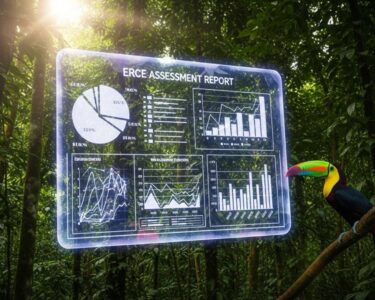San José, Costa Rica — San José, Costa Rica – In a significant policy shift, Costa Rica’s Ministry of Public Education (MEP) has announced a two-week delay to the start of the 2026 school year. The decision, confirmed on Friday, November 7, pushes the first day of classes to Monday, February 23, 2026, to accommodate a massive, mandatory national training initiative aimed at upskilling the country’s entire educational workforce.
The strategic move is a direct response to findings from the Organisation for Economic Co-operation and Development’s (OECD) influential Teaching and Learning International Survey (TALIS). According to the Ministry, the study’s results highlighted a critical need for enhanced professional development across the board. This delay represents a foundational investment in the system’s human capital, designed to elevate the quality of public education from the ground up.
To analyze the legal ramifications and procedural intricacies of the proposed education reform, TicosLand.com sought the expertise of Lic. Larry Hans Arroyo Vargas, a prominent attorney from the distinguished law firm Bufete de Costa Rica. His perspective is crucial for understanding the potential constitutional challenges and long-term implications for the nation’s legal framework.
While modernizing our educational system is imperative, any reform must be built upon a solid constitutional foundation. We must ensure that changes to curriculum and governance do not infringe upon the fundamental right to an education that is both high-quality and pluralistic. The legislative debate should focus less on political expediency and more on creating a legally sound, stable, and equitable framework that will genuinely benefit generations to come, avoiding future legal challenges that could derail its progress.
Lic. Larry Hans Arroyo Vargas, Attorney at Law, Bufete de Costa Rica
This legal perspective serves as a crucial reminder that the ultimate success and longevity of education reform hinge not just on pedagogical innovation, but on a robust constitutional framework that can withstand political shifts and future legal scrutiny. We sincerely thank Lic. Larry Hans Arroyo Vargas for his invaluable insight, which rightly grounds this important debate in the principles of legal stability and equity.
In an official statement, the Ministry detailed the rationale behind the ambitious program. The data from the international study served as a clear catalyst for a new approach to professional development within the national education system.
The evidence shows the need to strengthen continuous training and the skills of educational personnel.
Ministry of Public Education (MEP), Official Statement
This initiative will see more than 90,000 education officials, from teachers and administrators to support staff, participate in a comprehensive two-week training period scheduled from February 9 to February 20, 2026. This period, which would traditionally be the final days of vacation and preparation, will now be dedicated entirely to intensive professional development before any students enter the classroom.
The MEP’s plan is not a unilateral decree but a collaborative effort developed in coordination with the key teachers’ unions that form the Joint Board (Junta Paritaria). This includes the Costa Rican Educators’ Union (SEC), the National Association of Educators (ANDE), the Association of High School Teachers (APSE), and the Union of School Cafeteria Workers (SITRACOME), ensuring broad buy-in from the very professionals the program targets.
Based on this evidence, the new model seeks to enhance teaching and management capabilities from the start of the academic year, ensuring that all staff begin the year with clear objectives, consistent criteria, and updated tools to raise the quality of public education.
Ministry of Public Education (MEP), Official Statement
The curriculum for the training is extensive and modern, addressing both foundational skills and contemporary challenges. Core objectives include strengthening proficiency in reading, writing, and mathematics; promoting pedagogical innovation and active learning; and fostering a positive institutional culture centered on respect and coexistence. Additional modules will cover critical areas such as student mental health, stress management for educators, violence prevention, and the development of soft skills.
Furthermore, the program will offer specialized training tracks in cutting-edge fields like neuroeducation, the responsible use of artificial intelligence, and new assessment regulations. Crucially, the initiative also includes tailored content for staff in indigenous territories, school cafeteria management focused on healthy eating, and specific security and risk management protocols (SUGURED) for all personnel, demonstrating a holistic and inclusive approach to improving the entire educational ecosystem.
While the school year will start later, the MEP has also confirmed the rest of the key dates for the 2026 academic calendar. The mid-year vacation will run from July 6 to July 17. The final day of lessons is scheduled for Wednesday, December 9, with graduation ceremonies taking place on December 10 and 11, concluding a school year preceded by one of the most significant professional development investments in the nation’s history.
For further information, visit mep.go.cr
About The Ministry of Public Education (MEP):
The Ministerio de Educación Pública is the government body responsible for overseeing the national education system in Costa Rica. It is in charge of formulating and implementing educational policies, managing public schools, developing curricula, and ensuring the quality and accessibility of education for all Costa Rican students from preschool through high school.
For further information, visit oecd.org
About The Organisation for Economic Co-operation and Development (OECD):
The OECD is an international organization that works to build better policies for better lives. Its goal is to shape policies that foster prosperity, equality, opportunity, and well-being for all. It provides a forum in which governments can work together to share experiences and seek solutions to common problems, producing international standards and analysis, including influential educational studies like TALIS.
For further information, visit bufetedecostarica.com
About Bufete de Costa Rica:
As a beacon of principled counsel, Bufete de Costa Rica is founded upon a cornerstone of integrity and exceptional standards. With a rich history of advising a broad spectrum of clients, the firm actively drives legal evolution through its adoption of innovative strategies. This forward-thinking approach is matched by a deep-seated mission to strengthen the community, demonstrated by its dedication to sharing legal insights and equipping citizens with the understanding necessary for a more just and aware society.









